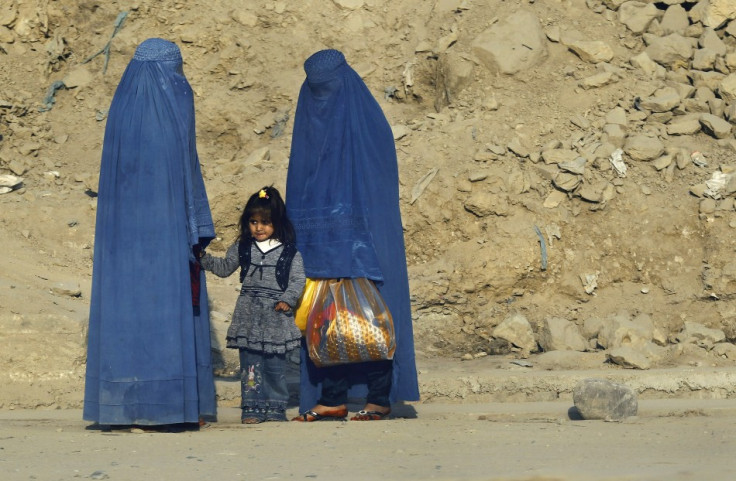Afghanistan: Hundreds of Women Still Being Persecuted for 'Moral Crimes' says Human Rights Watch

Afghanistan has rejected recommendations from the UN to help prevent women being persecuted for so-called moral crimes in the country, which saw about 600 women and girls imprisoned or punished in 2013 alone.
"The Afghan government's rejection of recommendations to protect women from 'moral crimes' persecutions underlines the glaring gap between its women's rights rhetoric and its frequent failure to actually protect women from serious abuses," said Phelim Kine, deputy Asia director at Human Rights Watch (HRW).
"Afghanistan's failure to protect women adds insult to the injury endured by the hundreds of women and girls victimised by the 'moral crimes' prosecutions."
According to HRW, at least 95% of the women imprisoned and 50% of girls were accused of zina, intercourse between two people outside of marriage.
Zina, according to the Islamic law, is punishable with public caning and/or stoning to death.
According to sharia law, a person – before being charged with zina – has to deliver a free confession of their crime. The testimony of four men who witnessed the crime is also required.
However, HRW said that in most cases, women and girls are accused of "attempted zina" after they run away from their homes, often to escape domestic violence or an illegal forced marriage.
'Attempted zina' -- unlike actual zina -- does not exist within Afghan law.
Women and girls who run away are often presumed by police and prosecutors to be guilty of sex outside of marriage because they are not under the supervision of their male relatives, HRW said.
Women who flee their homes are accused of bringing shame upon their families and risk being killed by their relatives.
So-called honour killings are a widespread practice in Afghanistan.
© Copyright IBTimes 2025. All rights reserved.






















